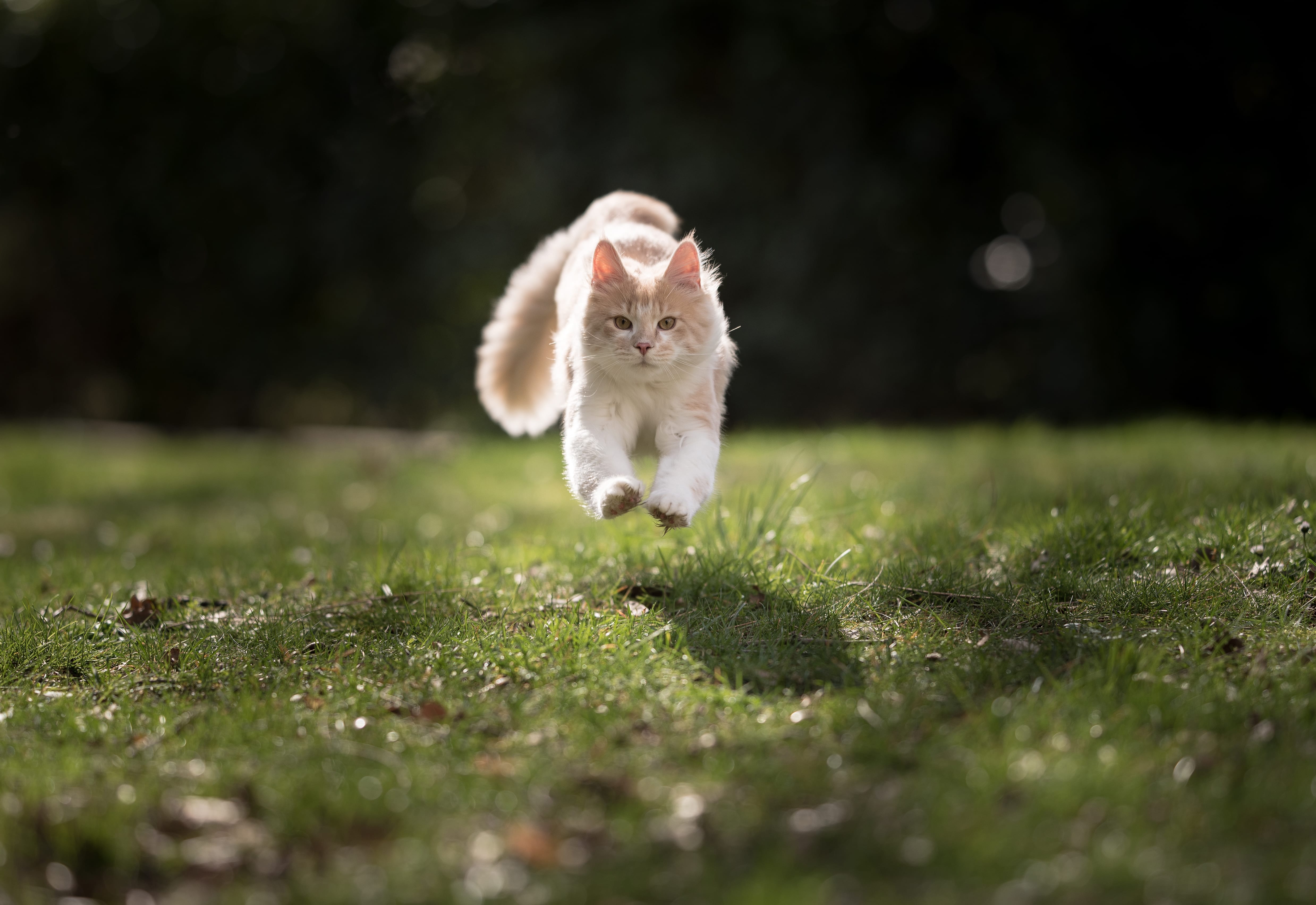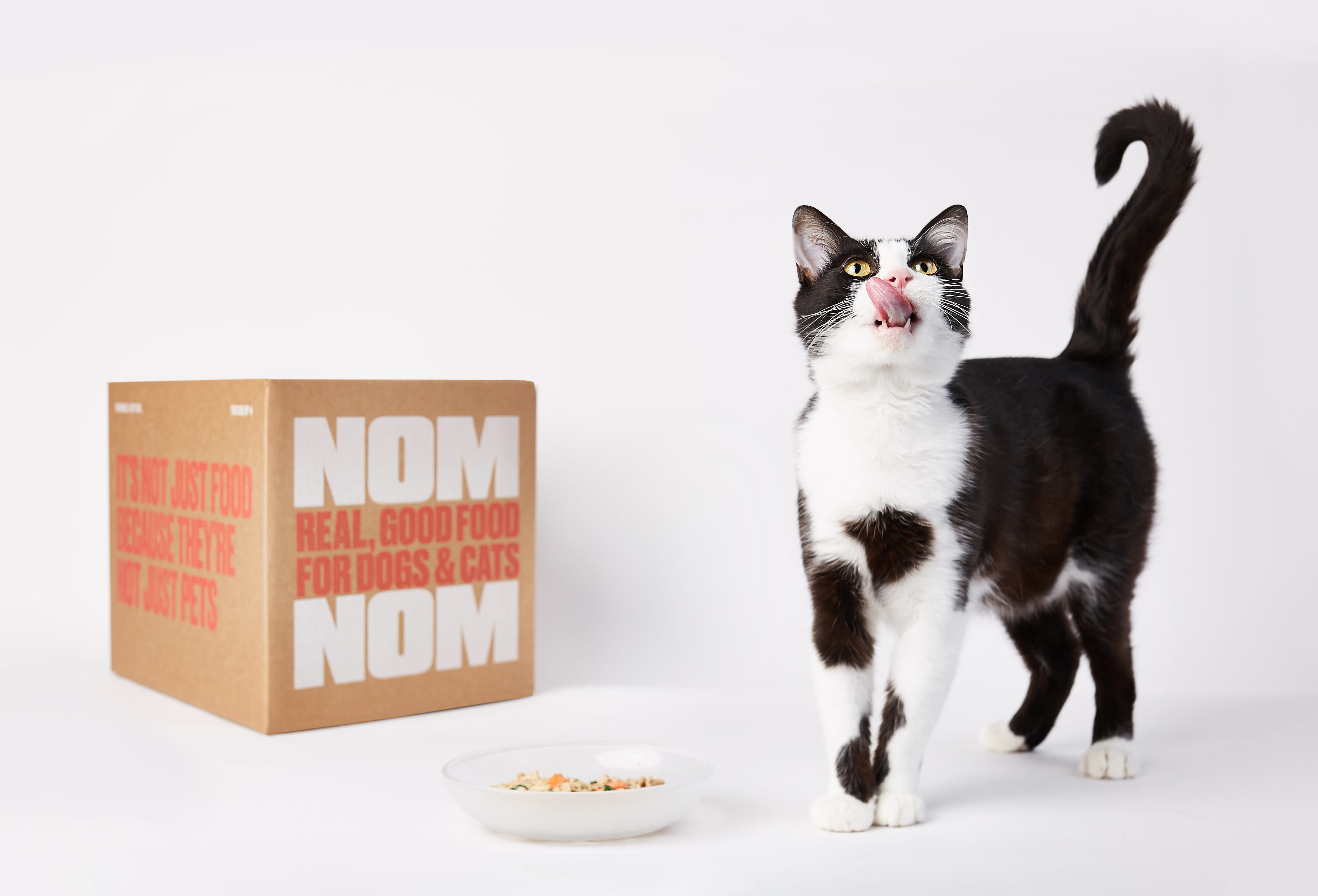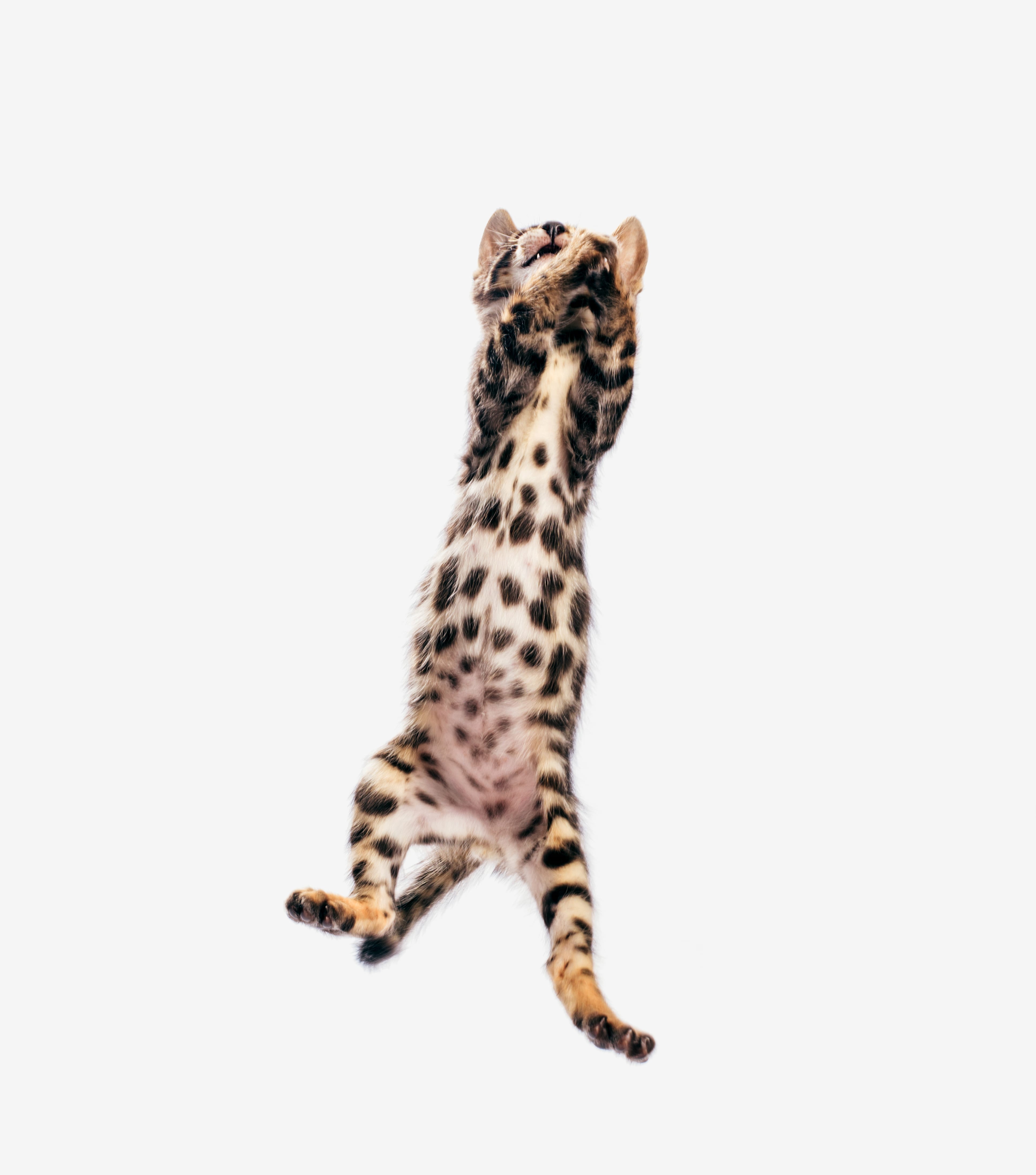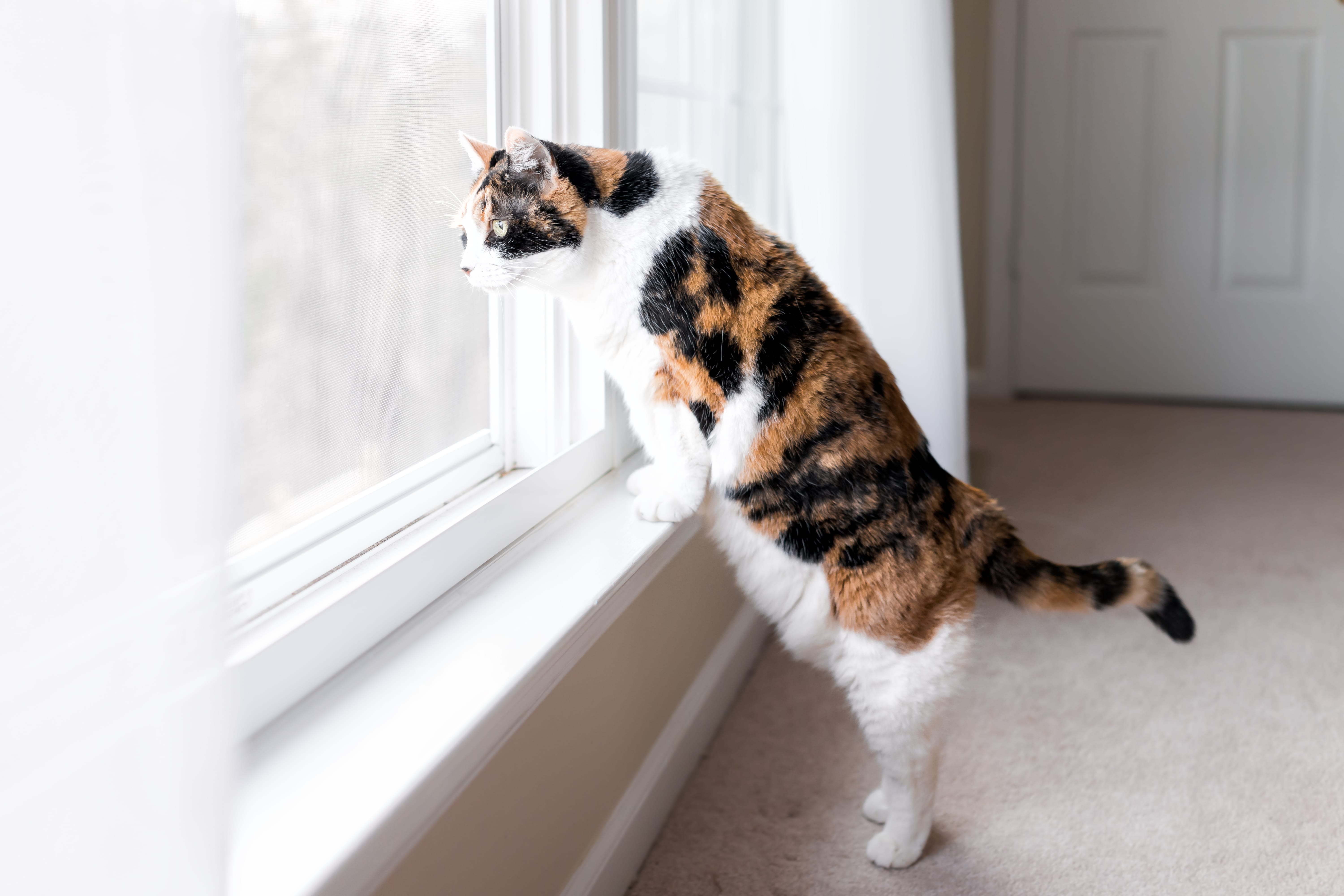Feeding our cats is an important part of their daily care. However, the way this food is served is often overlooked. While cats might not need a set schedule like a dog would, they still need some type of feeding plan in order to obtain the appropriate amounts of calories and nutrients. iHeartCats has partnered with Nom Nom, and they have shared this beneficial information with us!
Some cat parents stick to free feeding, others prefer scheduling specific meal times, and some even use a combination of the two. One method isn’t necessarily better than the others as long as your cat is given the nutritional requirements that they need each day. Their age, health conditions, and activity levels can all affect the amount of calories and nutrients that they need. So, it is important to keep this in mind when feeding your cat.
Cat Feeding vs. Dog Feeding
Cats have been domesticated for about 6,000 years now. While this might sound like a large number, dogs have actually been living with humans for twice as long. Because of this, cats will often still show some of their natural instincts as a predator much more than a dog would.
In the wild, cats are intelligent hunters that hunt constantly. Each of their meals in the wild is very small in size, only containing a small portion of the cat’s daily needs. A typical wild cat will eat 8 to 12 small meals throughout the day to add up to that necessary calorie and nutrient count.
Even today, feral cats still use these methods to sustain themselves. Many cat parents feel that feral cats look too skinny, but a study has actually shown that these cats have a healthy weight and a healthy body fat distribution, making their methods of hunting very effective.
Dogs will hunt in packs in the wild, but cats prefer to rely on themselves. They only hunt food to get proper nutrients for themselves, and they don’t let entertainment or social status get in the way of their hunting like a dog might. So, these natural instincts still affect house cats today.
Feeding for Different Life Stages
An important factor in your cat’s nutritional requirements is how old they are. For example, kittens need much more food per pound of body weight than a full-grown cat does. To help with this, serving multiple smaller meals throughout the day might be better than giving them larger, less frequent meals.
Once your cat is about a year old, it is considered an adult, so its feeding schedule will likely change from when it was a kitten. Adult cats can adjust better to irregular feeding schedules, but as long as you give them the amount they need each day, the specific schedule doesn’t matter as much.
When your cat reaches about 7 years of age, that is when they are considered a senior. Senior cats are better with consistency, so as your cat ages, you will want to maintain a regular feeding schedule for them.
Health Issues Related to Feeding Routines
If your cat starts frequently begging for food, this doesn’t necessarily mean that you’re not feeding them enough. Instead, it could actually be a sign of a health problem. Hyperthyroidism and diabetes are two health problems that can cause your cat to want food all the time. So, if you notice this change in your cat’s behavior, you should talk to your vet to find out the underlying cause.
The most common dietary health problem for cats is obesity. Sadly, overweight cats actually outnumber the amount of normal weight cats in the United States today. Sure, a begging cat can be cute and difficult to resist, but you need to stay mindful of their weight. If your cat is overweight, you need to decrease their amount of food each day, increase their exercise, or both.
To help your cat maintain a healthy weight, you can use either feeding schedule type. However, a recent study revealed that scheduled meals seem to have a more positive effect on cats. These regular meals can make it easy for them to lose weight and stay healthy.
As long as you know how much food your cat needs and you give them that amount each day, you should have no problem keeping your furry friend healthy. When calculating their daily amount of calories and nutrients, always be sure to consider treats in those calculations as well because even small treats could throw off your cat’s diet quickly.
Different Food Choices
When choosing a feeding schedule for your cat, certain foods might affect your decision. Raw, fresh, and wet foods all have higher levels of moisture, so they will spoil quicker than dry and semi-moist cat food. So, you might not want your cat to rely on free feeding if the food doesn’t last as long. Always limit the time the moist food sits out, and store it in the refrigerator to keep it fresh.
Most cats seem to find dry food less desirable than raw, fresh, or wet food. While this might seem like a negative thing, it can actually stop your cat from eating more than necessary. So, the food you select for your cat all depends on what you think will benefit them the most.
How Your Routine Affects the Feeding Schedule
Your routine and that of everyone else in your household can actually affect your cat’s diet as well. If there are multiple people in your home that feed your cat, it can be difficult to ensure that they are eating the proper amount each day. If you do have multiple people feeding your cat, make sure each person notes how much the cat is being fed to avoid overfeeding.
Also, if you live in a household with multiple cats, it can also be difficult to keep track of how much each cat is eating. However, it is not impossible if you keep a close eye on your cats.
Also, if you have a busy schedule at home, it is okay to work your cat’s feeding schedule around your household schedule. For example, if you are busy getting ready for work or school in the morning, a night feeding schedule might work better for your cat. As long as they are still getting their daily nutritional needs, that is what really matters.
Find What Works and Stick With It
Even though cats have a natural instinct to eat small meals throughout the day, they are perfectly fine with set meals as long as they include the proper amount of food for your cat. Decide on a feeding schedule that works best for both you and your cat’s needs. If you are thinking about changing your cat’s feeding schedule or if you ever have questions, talk to your vet to make sure your cat is staying happy and healthy.
With Nom Nom, good food is a priority for your cat, so that is why they decided to pass on this helpful information to iHeartCats. Nom Nom provides a delicious recipe that your cat can enjoy, so check them out today!





